|
The President of the United States has nearly unlimited power to pardon or commute the sentences of those accused or convicted of federal crimes. This power is embedded in Article 2, Section 2 of the Constitution, which states that the president has the “power to grant reprieves and pardons for offenses against the United States, except in cases of Impeachment”. The framers of the Constitution thought that fear of impeachment, the court of public opinion, or the integrity of the person holding the highest office in the land, would keep any abuses in check. Unfortunately, this has proven not to be the case. The self-serving pardons granted by President Trump in the closing hours of his administration, demand that reforms be explored. Exercise of the Presidential Pardon: The Constitution provides no standards or guidelines on the use of the presidential pardon, and therefore it can be used for any reason, or no reason. Pardons were deemed necessary to address injustices, at a time when many crimes were punishable by death and haste was of the essence. As Alexander Hamilton argues in Federalist No. 74 (https://guides.loc.gov/federalist-papers/text-71-80), the purpose of the pardon power is to temper justice with mercy, and in order to facilitate reconciliation which is sometimes needed to restore the tranquility of the commonwealth. Examples of this include pardons granted by Abraham Lincoln and Andrew Johnson to Confederate Soldiers, and amnesty granted by Jimmy Carter to Vietnam-era draft evaders. An 1866 Supreme Court ruling affirmed that the presidential pardon “extends to every offence known to law, and may be exercised at anytime after its commission, either before legal proceedings are taken, or during their pendency, or after conviction and judgement”. This was how President Ford was able to grant Richard Nixon a full, free, and absolute pardon for all offenses against the United States even before he was charged with any. It is important to note that presidential pardons only exonerate federal crimes. It can not be used to pardon state or local offenses, and it cannot be used to overturn civil judgments. The president does not have the power to pardon defendants in an impeachment trial or anyone who has been impeached. The pardon may be granted even before legal proceedings have begun, but pardons may not be granted for crimes that have not yet been committed. Can Presidents Pardon Themselves? The Constitution does not explicitly prohibit it, and no president has tried. But as James Madison wrote, “no man is allowed to be a judge in his own case, because his interest would certainly bias his judgement, and, not improbably, corrupt his integrity”. This is a longstanding common-law principle, and many legal experts agree that a self-pardon would not stand up to judicial scrutiny. Richard Nixon may have sought to pardon himself if not for his Justice Department’s Office of Legal Counsel opinion that a president could not pardon himself. If a president attempted a self-pardon, the matter would most certainly end up in the Supreme Court. Office of the Pardon Attorney: The Office of the Pardon Attorney, within the Department of Justice (DOJ), was established approximately 125 years ago to assist the president in the exercise of executive clemency. Executive clemency may take several forms. These include full pardon, commutation of sentence, remission of fine or restitution, or reprieve. Requests for executive clemency are directed to the Pardon Attorney for review, investigation, and preparation of the DOJ’s recommendation to the president. The Office of the Pardon Attorney has established procedures and standards for considering pardon petitions ( https://www.justice.gov/pardon). But the president is not required to follow their recommendations and retains full pardon authority. In fact, President Trump has mostly bypassed the Office of the Pardon Attorney when considering pardon petitions. Instead, petitioners have approached the White House directly through advisor Jared Kushner, Chief of Staff Mark Meadows, White House Council Pat Cipollone, or the president himself. Pardons as Tools of Justice or Personal Gain? President Trump was not the first, and he certainly won’t be the last president to use the executive clemency system to his own advantage. Under Donald Trump, the executive clemency system has been dominated by inside access, and used to serve his personal goals and whims. Analysis by Harvard law professor Jack Goldsmith found that 86 of Donald Trump’s first 94 pardons were “aberrant”’; meaning that they circumvented the normal review process and benefitted celebrities, or people with political or family ties to the president (https://www.lawfareblog.com/trumps-circumvention-justice-department-clemency-process). In 2020, Donald Trump granted clemency to loyal associates Paul Manafort, George Papadopoulos, Michael Flynn, and Rodger Stone. Donald Trump also pardoned Jared Kushner’s father, a convicted criminal, as well as four Blackwater security guards convicted of murdering civilians in Iraq. These individuals were not wrongly convicted, showed little contrition or remorse for their crimes, and do not serve the public good by being pardoned. The pardon system was not established to foster cronyism and to subvert the rule of law. But this seems to be the case in these instances. The biggest abuse of the system is the large number of pardons issued in the final hours of a presidency, leaving little time for scrutiny. This is exemplified by Bill Clinton’s pardon of Marc Rich who was indicted for tax evasion and racketeering. Rich and his wife were large donors to Hilary Clinton’s Senate campaign and to the Clinton Library Foundation. The fact that Rich was a fugitive from law living overseas, did not prevent him from getting a “get out of jail free” card. On his final day in office, President Trump pardoned 74 people and commuted the sentences of 70 others. I’ll let you decide how many of these meet the Constitution’s intent of the pardon clause. Here is a full list of the 144 people receiving clemency: (https://www.nbcnews.com/politics/donald-trump/full-list-trump-s-last-minute-pardons-commuted-sentences-n1254806). Many of these last-minute pardons are rotten to the core, but perfectly legal. So, what can be done about it? Nothing, without some type of reform. Possible Reforms: If you assume, as Alexander Hamilton did, that all presidents would show “prudence and good sense” in the exercise of the pardon authority, then nothing needs to be done. But as recent history has shown, not all presidents are the principled gentlemen that the framers of the Constitution had envisioned. Here are a few suggestions for reforms that would better align the president’s pardon authority with how it was originally intended:
The president’s pardon authority was not intended to excuse injustice, but to do justice. The Constitution gives the president nearly unfettered authority to issue pardons. There is very little transparency in the process, and many of the most questionable pardons occur in a president’s final hours in office. It is time to reform the pardon system and restore it to the purpose for which it was intended. If you enjoy reading this type of commentary please subscribe to my blog and tell a friend. You will receive an email notification when new blogs are posted. The email will come from the site’s email: armchairamerican1776 @gmail.com. Thanks, Armchair American
2 Comments
Joan Nibert
1/22/2021 06:51:09 pm
Very informative read. I especially appreciate suggestion #3: "Follow a structured process with full transparency." A week ago that would never have been supported. Hopefully now it will but Congress has to deal with its members who sell their souls to ensure that Trump campaigns for them in 2022.
Reply
Kurt Dunphy
1/23/2021 09:42:34 am
Thanks for the comment Joan. Hopefully our new president will set a new standard for transparency and justice in the pardon process.
Reply
Leave a Reply. |
AuthorThe Armchair American. Archives
November 2024
Categories
All
|
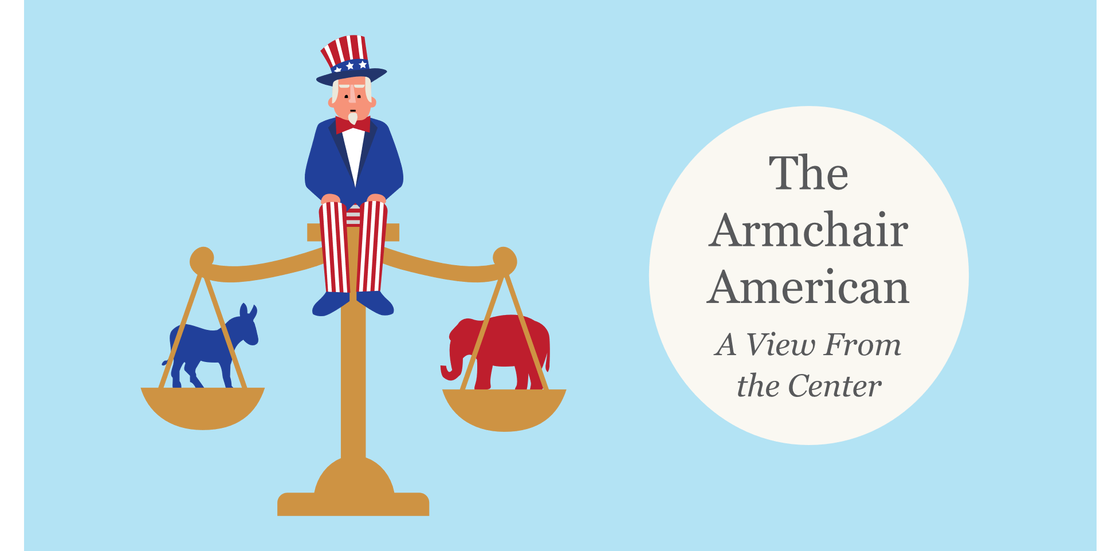

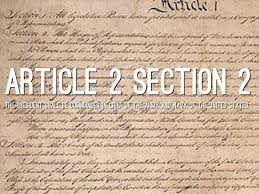

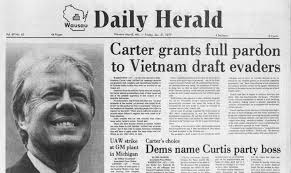
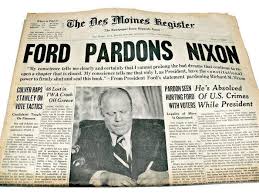
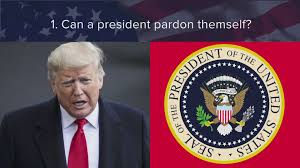
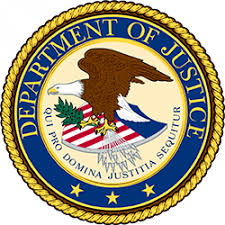
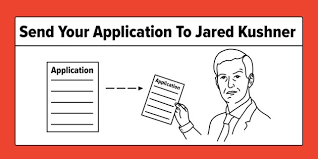
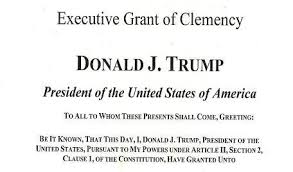

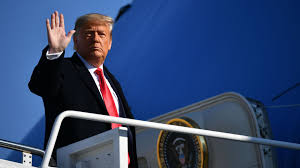
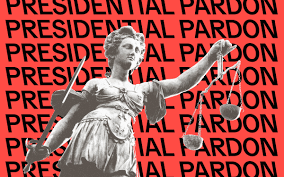

 RSS Feed
RSS Feed